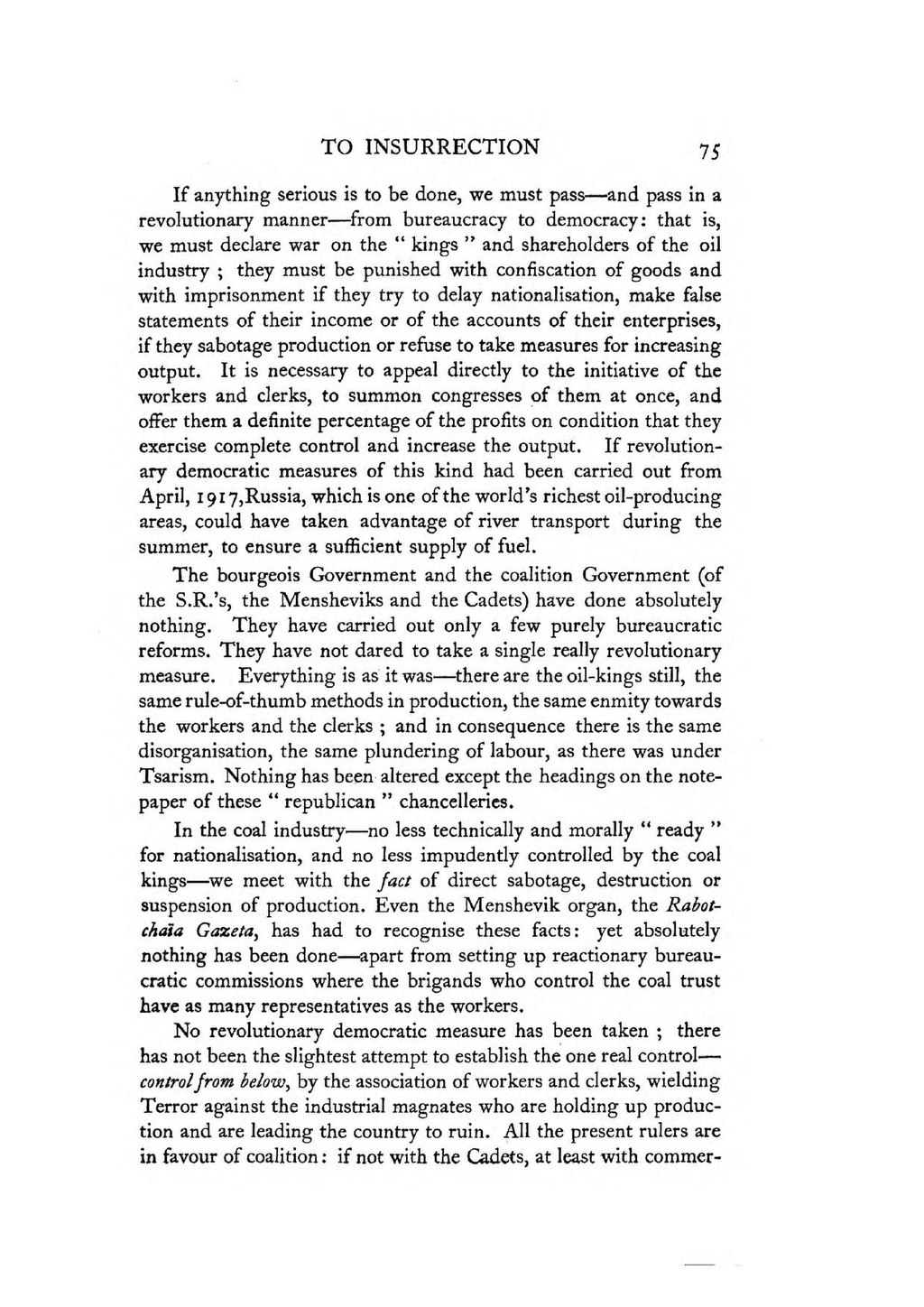If anything serious is to be done, we must pass—and pass in a revolutionary manner—from bureaucracy to democracy: that is, we must declare war on the "kings" and shareholders of the oil industry; they must be punished with confiscation of goods and with imprisonment if they try to delay nationalisation, make false statements of their income or of the accounts of their enterprises, if they sabotage production or refuse to take measures for increasing output. It is necessary to appeal directly to the initiative of the workers and clerks, to summon congresses of them at once, and offer them a definite percentage of the profits on condition that they exercise complete control and increase the output. If revolutionary democratic measures of this kind had been carried out from April, 1917, Russia, which is one of the world's richest oil-producing areas, could have taken advantage of river transport during the summer, to ensure a sufficient supply of fuel.
The bourgeois Government and the coalition Government (of the S.R.'s, the Mensheviks and the Cadets) have done absolutely nothing. They have carried out only a few purely bureaucratic reforms. They have not dared to take a single really revolutionary measure. Everything is as it was—there are the oil-kings still, the same rule-of-thumb methods in production, the same enmity towards the workers and the clerks; and in consequence there is the same disorganisation, the same plundering of labour, as there was under Tsarism. Nothing has been altered except the headings on the notepaper of these "republican " chancelleries.
In the coal industry—no less technically and morally "ready" for nationalisation, and no less impudently controlled by the coal kings—we meet with the fact of direct sabotage, destruction or suspension of production. Even the Menshevik organ, the Rabotchaïa Gazeta, has had to recognise these facts: yet absolutely nothing has been done—apart from setting up reactionary bureaucratic commissions where the brigands who control the coal trust have as many representatives as the workers.
No revolutionary democratic measure has been taken; there has not been the slightest attempt to establish the one real control—control from below, by the association of workers and clerks, wielding Terror against the industrial magnates who are holding up production and are leading the country to ruin. All the present rulers are in favour of coalition: if not with the Cadets, at least with commer-
